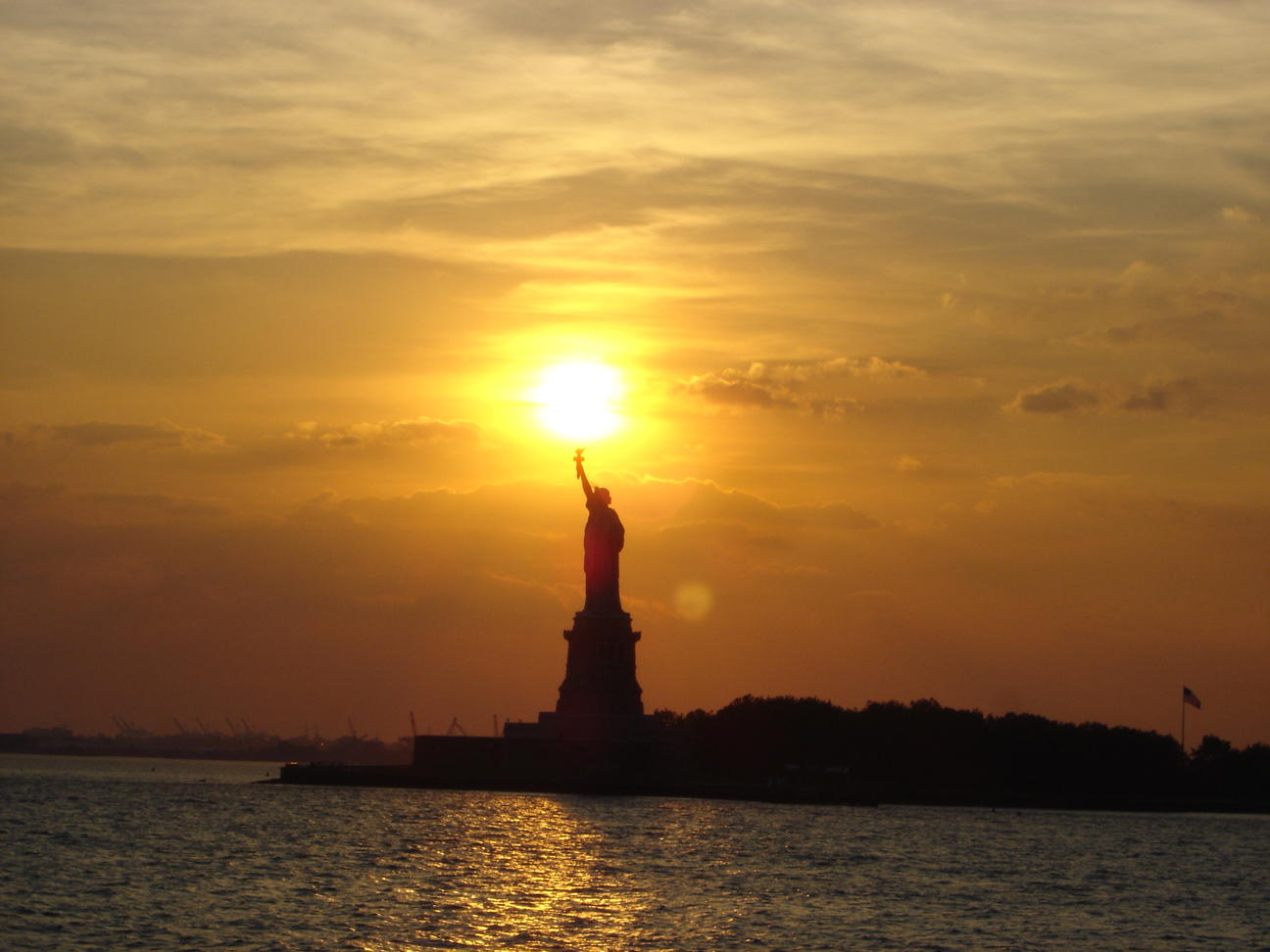We are not free unless we fight for the freedom of others

I am coming to the belief that the old cliché that no one is free unless everyone is free has a very special, and true, meaning for the United States.
There is an old theory in psychology that I’m aware of mainly because it was my faculty advisor’s at Cornell. It is that for many of the ways we see ourselves, we observe ourselves from the outside, and make conclusions about ourselves as if we were an outside observer. If we see ourselves doing kind things, then we see ourselves as kind. If we do free work in favor of some political cause, we will assume that we must support that political cause.
Now, he wasn’t saying that we act randomly and decide what we are based on our random acts; many things we do because we are the kind of person who does them. But many things we don’t. We go along with friends or family or coworkers on things that don’t matter to us, but, his theory goes, when we go along we start to believe that’s who we are.
If we never really thought about a vacuum cleaner, and the vacuum cleaner salesman convinces us to let him into our home, perhaps we really were interested in a vacuum cleaner. Maybe we do need a new one.
That is, we are what we do, rather than we do what we are. I think something similar works on the national level, that we see ourselves, as a nation, based on what we do as a nation. This would mean that linking, Sharansky-style, freedom under tyrants to any deals we make with those tyrants, makes us freer too because we see ourselves as a free country, in opposition to the tyranny elsewhere.
If we link beneficial deals with the USSR to their freeing and not harassing dissidents, then we will value more closely our freedoms at home. And if we position ourselves to pragmatically ignore the tyranny in Iran or Cuba in favor of short-term gain, well, we will be more pragmatic at home as well, and our freedom here will suffer.
We are not free unless we understand the power of freedom to transform.
In response to Republicans and America must provide an alternative: If America does not provide an alternative to the evils of progressivism gone awry in the world, it is lost.
- The Case for Democracy
- When did America forget that it’s America?
- Self-perception theory at Wikipedia
- “Self-perception theory is an account of attitude change developed by psychologist, Daryl Bem. It asserts that we develop our attitudes by observing our own behavior and concluding what attitudes must have caused them.”
More freedom
- The Full Face of V: In Your Hands
- The real story in all of Moore’s books is what happens after the final page. This is most obvious in Watchmen, but every one of these books highlights an uncertain future.
- Cuban Cigar Aficionado
- Cigar Aficionado is trying to call an old, failed approach to diplomacy “something different” now that it’s being applied to Cuba. But they’re just a cigar magazine. What’s sad is that the President of the United States is also pushing an old failure.
More Natan Sharansky
- Comparing our Iran negotiations to our Soviet negotiations
- Natan Sharansky asks, "When did America forget that it’s America?” He is basically pointing out the same thing I did: that we are not defining civilization as better than barbarism.

